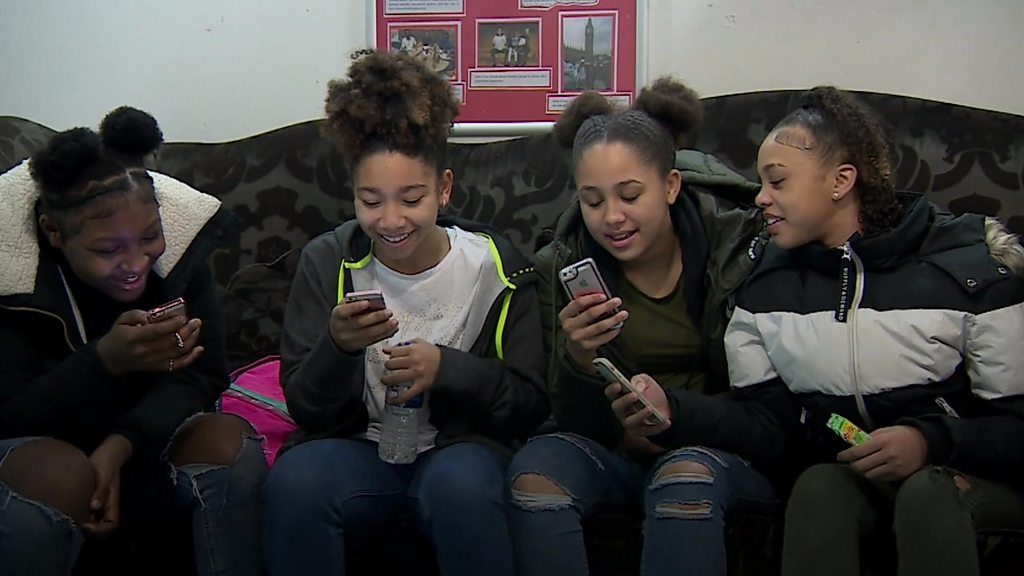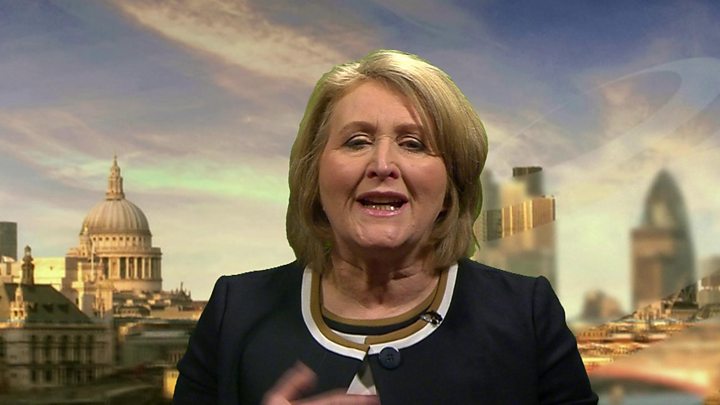Schools 'should Help Children With Social Media Risk'


Media playback is unsupported on your device
Schools should play a bigger role in preparing children for social media's emotional demands as they move from primary to secondary school, England's children's commissioner says.
Anne Longfield said she was worried many pupils at that stage became anxious about their identity and craved likes and comments for validation.
Her study said children aged eight to 12 found it hard to manage the impact.
The government said it was working with schools on online safety education.
The report into the effects of social media on eight to 12-year-olds claimed many children were over-dependent on "likes" and comments for social validation.
It said children approach a "cliff-edge" as they move from primary to secondary school, when social media becomes more important in their lives.

Media playback is unsupported on your device
The report spoke to 32 children in eight focus groups, aged eight to 12, and found some saying:
- "If I got 150 likes, I'd be like, 'that's pretty cool, it means they like you'" - Aaron, 11
- "I just edit my photos to make sure I look nice" - Annie, 11
- "My mum takes pictures of me on Snapchat... I don't like it when your friends and family take a picture of you when you don't want them to" - Hassan, eight
- "I saw a pretty girl and everything she has I want, my aim is to be like her" - Bridie, 11
Ms Longfield called on schools and parents to prepare children emotionally for the "significant risks" of social media as they move schools and meet new classmates - many of whom have their own phones.
"It's really when they hit secondary school that all of these things come together," she told BBC News.
"They find themselves chasing likes, chasing validation, being very anxious about their appearance online and offline and feeling that they can't disconnect - because that will be seen as socially damaging."
Although most social media platforms have a minimum age limit of 13, the report said three-quarters of children aged 10 to 12 already had accounts.
Ms Longfield said social media provided "great benefits" to children but was also exposing them to "significant risks emotionally".
She suggested compulsory digital literacy and online resilience lessons for year six and seven pupils, so that they learn about the "emotional side of social media".
Parents should also prepare their children, she said, by helping them "navigate the emotional rollercoaster" of the negative aspects of social media.
What parents and pupils say
Ella Brookbanks, mother to nine-year-old Sophie and 15-year-old Bradley, said her teenage son is "expected" to be on social media.
"He seems to want to buy things in order to take pictures of it to send to his friends to show that he has these type of things," she told BBC News.
"It's a recognition thing - 'look what I have, look what I can get, like me'."
She says her daughter "doesn't see that side of it just yet" but worries Sophie will experience the negative side to social media when she starts secondary school.
Parent Trevor said his 12-year-old twin daughters had moved schools as a result of the pressure from social media, but admits they "can't walk away" from it.
He told BBC Radio 5 live: "I can't say to them, 'You can't use that,' when I use it."
He said teachers lacked the skills to educate children and said the approach by politicians was "disappointing".
What can parents do?
Matthew Reed, chief executive of the Children's Society, urged parents to have "open conversations" with their children about the sites and apps they use.
"This can include looking through their 'friends' lists together and finding out how their child knows different people," he said.
"Check their privacy settings and get children to think about what information and photos they are comfortable with others having access to."
Tony Stower, the NSPCC's head of child safety online, said regular conversations would mean children felt able to turn to their parents if they had worries or concerns.
"It's worth reassuring children that people often present rose-tinted versions of their lives on social media, and they shouldn't feel pressured to lead the 'perfect' life, or to look a certain way," he said.
Grace Barrett, co-founder of children's mental health charity the Self-Esteem Team, said it largely fell to parents to teach their children about social media.
"Teachers can't be equipped to do everything," she said.
"We should be helping young people understand that their value lies outside of 'likes' and outside of what they look like."
From Chip War To Cloud War: The Next Frontier In Global Tech Competition
The global chip war, characterized by intense competition among nations and corporations for supremacy in semiconductor ... Read more
The High Stakes Of Tech Regulation: Security Risks And Market Dynamics
The influence of tech giants in the global economy continues to grow, raising crucial questions about how to balance sec... Read more
The Tyranny Of Instagram Interiors: Why It's Time To Break Free From Algorithm-Driven Aesthetics
Instagram has become a dominant force in shaping interior design trends, offering a seemingly endless stream of inspirat... Read more
The Data Crunch In AI: Strategies For Sustainability
Exploring solutions to the imminent exhaustion of internet data for AI training.As the artificial intelligence (AI) indu... Read more
Google Abandons Four-Year Effort To Remove Cookies From Chrome Browser
After four years of dedicated effort, Google has decided to abandon its plan to remove third-party cookies from its Chro... Read more
LinkedIn Embraces AI And Gamification To Drive User Engagement And Revenue
In an effort to tackle slowing revenue growth and enhance user engagement, LinkedIn is turning to artificial intelligenc... Read more

